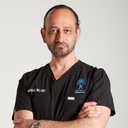Weight regain after gastric bypass is more common than many people realize, and it can feel discouraging, but it does not mean you have failed or that the surgery is no longer effective. At one year after surgery, some patients experience plateaus or even regain if old habits return, if portion sizes gradually increase, or if “slider” foods high in carbohydrates and fats are consumed more often. In some cases, anatomical changes such as stretching of the gastric pouch or enlargement of the connection to the intestine may also contribute.




